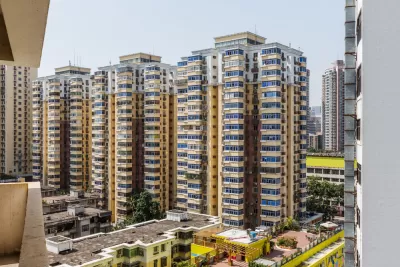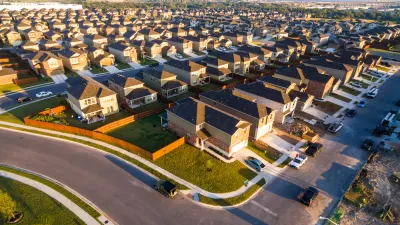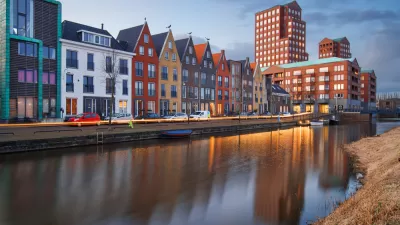A growing movement to implement a nationwide property tax in China is meeting resistance from the rich and powerful.

"This year it seemed China was finally going to make headway on an idea familiar to U.S. homeowners: a property tax," according to Dominique Fong. Now it seems that possibility is no longer a political reality—for now at least.
"Lu Kehua, China’s vice housing minister, last month said the government needed to 'speed up' a property-tax law," to "tame" speculation in the real estate market and to provide revenue for local governments. Despite the support from a high-ranking official, "the annual National People’s Congress came and went this month with no discussion of the topic," according to Fong.
The political opposition to the idea of a property tax comes from wealthy and politically powerful Chinese residents—a difficult group to win over in any country. The political opposition to the property tax idea claims it does not want to slow the economy by imposing new changes to the country's tax structure.
There have been a few property tax experiments in the country since 2011. As Fong reports, property taxes in Chongqing and Shanghai, both unique in their approach, were considered failures.
[The Wall Street Journal article might be behind a paywall for some readers.]
FULL STORY: China Kicks Property Tax to the Curb—For Now

Americans May Be Stuck — But Why?
Americans are moving a lot less than they once did, and that is a problem. While Yoni Applebaum, in his highly-publicized article Stuck, gets the reasons badly wrong, it's still important to ask: why are we moving so much less than before?

Using Old Oil and Gas Wells for Green Energy Storage
Penn State researchers have found that repurposing abandoned oil and gas wells for geothermal-assisted compressed-air energy storage can boost efficiency, reduce environmental risks, and support clean energy and job transitions.

Placekeeping: Setting a New Precedent for City Planners
How a preservation-based approach to redevelopment and urban design can prevent displacement and honor legacy communities.

San Francisco’s Muni Ridership Grew in 2024
The system saw its highest ridership since before the Covid-19 pandemic, but faces a severe budget shortage in the coming year.

Colorado Lawmakers Move to Protect BRT Funding
In the face of potential federal funding cuts, CDOT leaders reasserted their commitment to planned bus rapid transit projects.

Safe Streets Funding in Jeopardy
The Trump administration is specifically targeting bike infrastructure and other road safety projects in its funding cuts.
Urban Design for Planners 1: Software Tools
This six-course series explores essential urban design concepts using open source software and equips planners with the tools they need to participate fully in the urban design process.
Planning for Universal Design
Learn the tools for implementing Universal Design in planning regulations.
Heyer Gruel & Associates PA
City of Moreno Valley
Institute for Housing and Urban Development Studies (IHS)
City of Grandview
Harvard GSD Executive Education
Salt Lake City
NYU Wagner Graduate School of Public Service
City of Cambridge, Maryland





























